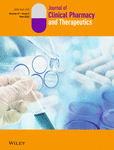Evaluation of desensitization protocols to betalactam antibiotics
R González-García and M Albanell-Fernández are contributed equally.
Funding information
The authors declare that no funding was received for the present study
Abstract
What is known and objective
Betalactam antibiotics are the most frequent cause of hypersensitivity reactions. Rapid drug desensitization (RDD) is a technique that induces temporary tolerance to a drug allowing a patient to receive the optimal agent. The increased use of RDD and the lack of standardization among available protocols in terms of formulation, starting dose, number of steps and dosing frequency make it essential to determine the safety and appropriate management of these protocols, especially regarding reconstitution, diluents, stability and drug administration in order to guarantee reproducibility. We reviewed betalactam desensitization protocols in a tertiary hospital, in accordance with currently published practices and evaluated its use on patients over a period of three years.
Methods
(a) We performed a literature search in PubMed, MEDLINE and Google Scholar databases for case reports and/or systematic reviews describing desensitization protocols for betalactam antibiotics. Pharmacokinetic parameters and physicochemical stability were checked for each antibiotic. (b) We retrospectively reviewed inpatients undergoing our antibiotic desensitization protocols from February 2018 to January 2021. Data and outcomes of desensitization procedures were analysed.
Results
We developed nine RDD protocols: meropenem, ceftriaxone, ceftazidime, ampicillin, ceftolozane/tazobactam, cloxacillin, piperacillin/tazobactam, amoxicillin/clavulanate and penicillin G sodium. Five antibiotics have RDD protocols for two different doses, adjusted to patients with impaired renal function. Detailed data (diluent, total dose, volume, concentrations, duration and stability) of the protocol of each antibiotic used are provided. 28 desensitizations were performed in 17 patients, three of them with confirmed allergies by skin test. 26 out of 28 (92.9%) of them were successfully completed, including those three with positive skin results. The pathogens most frequently involved were E. faecalis and P. aeruginosa; both frequently associated with bacterial resistance. Meropenem, ceftriaxone and ceftazidime were the antibiotics most desensitized. 25 out of 26 (96.1%) procedures were successful in resolving the infection.
What is new and conclusions
Detailed information about compounding, dilution and stability is crucial to ensure safe and successful desensitization processes, as well as good coordination between the Allergy and Pharmacy departments. The increase in bacterial resistance to many of the commercially available antibiotics limits the therapeutic options for treating multidrug-resistant infections; in those situations, antibiotic desensitization may be a key therapeutic option. Although there is a broad consensus in limiting the use of RDD to patients with confirmed allergy, in usual clinical practice its application in those strongly suspected of having type I hypersensitivity is still observed. Our betalactam desensitization protocols have shown themselves to be safe and effective, as evidenced by data from the 17 patients on whom they have been tested.
CONFLICTS OF INTEREST
The authors declare that they have no conflicts of interests.
Open Research
DATA AVAILABILITY STATEMENT
The data that support the findings of this study are available on request from the corresponding author. The data are not publicly available due to privacy and/or ethical restrictions.




